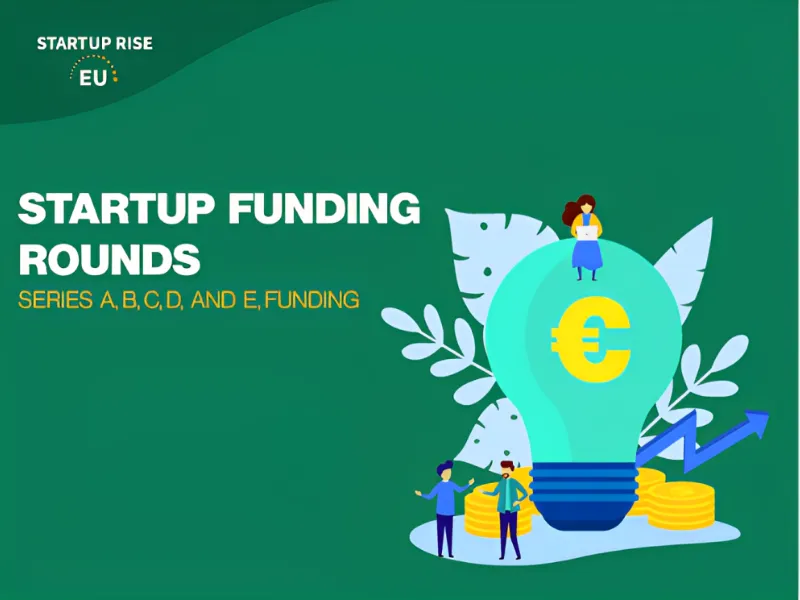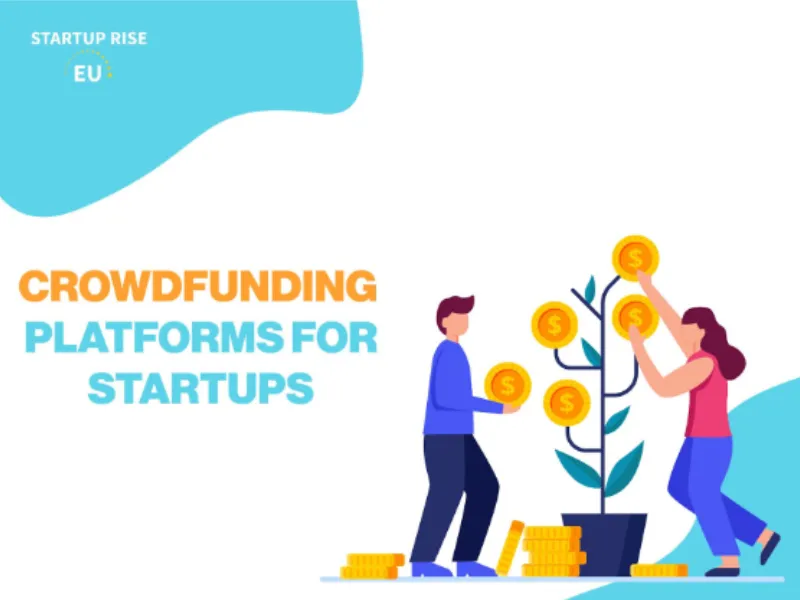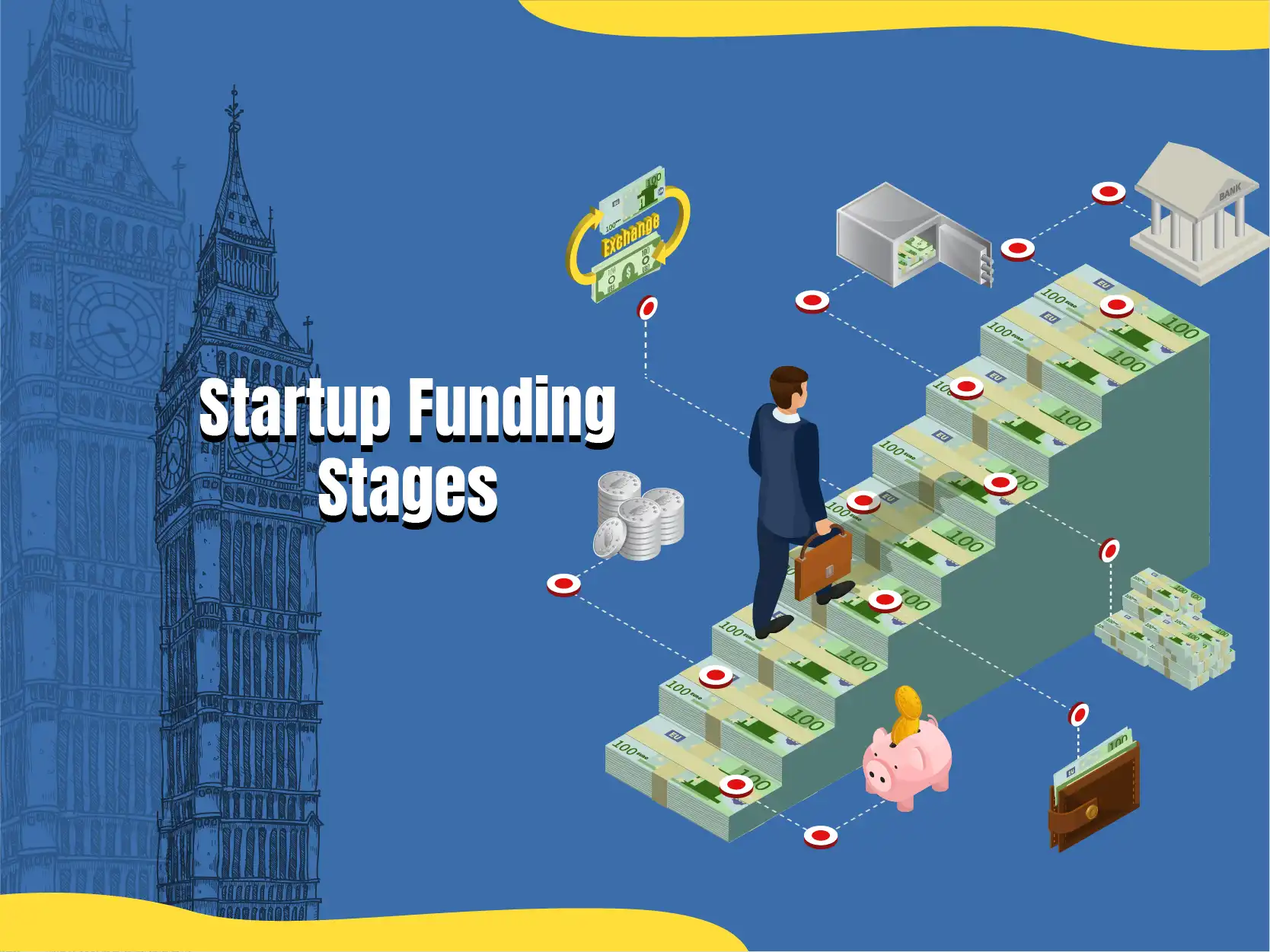Startup Series funding explained: Series A, Series B, Series C, Series D, Series E
Jul 7, 2024 | By Team SR

SUMMARY
- Startup series funding is a multi-round process in which startups receive investment from external investors in exchange for equity.
- Throughout the fundraising process, startups keep investors updated on the business’ progress and performance.
Startup Series Funding
In this article, we will discuss startup series funding and how it works. Funding is critical for a startup's growth, and angel investors and venture capital play a significant role in startup series funding. If you want to know everything about series funding, then this article can help you.
A guide to the different types of startup funding.
What is startup series funding?
Startup series funding is a multi-round process in which startups receive investment from external investors in exchange for equity. These investors may include friends, family, angel investors, and venture capitalists. Startups often resort to series funding to obtain capital when they have limited funds. This type of financing provides entrepreneurs with the initial funds they need while offering investors the potential for significant returns if the startup succeeds.
Series funding, also known as equity funding, allows startups to raise capital by issuing equity or acquiring ownership in the company. In the early stages, founders may lack sufficient funds to support the company's growth. Series funding provides startups with the necessary capital for growth, while investors gain an ownership stake. Successful growth and increased valuation enable startups to attract further funding rounds, reducing equity dilution for founders and early investors.
What are the different stages of series funding?
Startup funding goes through several key stages, each of which is crucial to its growth. It begins with seed funding, which is the earliest stage, in which founders, friends, family, and angel investors provide initial capital to set up the business. Due to the unproven nature of startups in the market, this funding often carries high risk for foundational activities like research, product development, and initial operating costs.
After seed funding, startups move on to Series A, which is a stage focused on product development and market validation. This round usually involves venture capitalists and aims to grow the company beyond its initial stages. Subsequent rounds include Series B and Series C, which focus on scaling operations and expanding market reach. Each funding round sees outside investors inject capital into the company in exchange for ownership shares, which impact the company’s valuation and growth trajectory.
These stages are important milestones that startups cross depending on their maturity and growth objectives. Investors, including angel investors and venture capitalists, play a vital role in providing financial support and strategic guidance during a startup's growth.
Pre-seed funding
Pre-seed funding is the earliest stage of financing for startups, occurring before formal series funding rounds. During this stage, founders and their supporters, such as family, friends, and incubators, typically invest several thousand dollars to $1 million. Entrepreneurs use this capital to develop product prototypes, conduct market research, and refine business models. This is a crucial period where entrepreneurs establish proof of concept and pilot projects, which lay the groundwork for future fundraising rounds. While not formally categorised within traditional funding rounds, pre-seed funding plays a vital role in launching and validating startup initiatives.
Seed funding
Seed funding marks the initial external funding stage aimed at starting a business such as planting the seeds for future growth. This stage typically raises an average of $3.5 million. Sources of seed funding include angel investors, friends and family, venture capital firms, or incubator programs. It is ideal for startups with defined initial ideas, enabling them to develop the product and refine their target market strategies.
Seed funding opportunities attract angel investors in particular, as they offer the opportunity to acquire equity in the company at the earliest possible stage, often at the lowest valuation. Despite the potential for higher risk, seed funding is crucial for starting a company that has not yet established itself in the market.
Series Funding Rounds
After the seed stage, startups typically enter series funding rounds with several product prototypes and a defined target audience. To secure further funding, they must present a comprehensive business plan demonstrating long-term sustainability and profit potential, even after they have gained initial attention and support.
Series funding involves raising capital in rounds such as seed funding, Series A, Series B, and beyond, each of which supports different stages from initial development to scaling the business. Entrepreneurs approach larger investors such as venture capitalists to secure more substantial financing.
Throughout the fundraising process, startups keep investors updated on the business’ progress and performance. Funding progresses from seed to Series A, Series B, Series C, and beyond. In the early stages, founders and close supporters such as family and friends typically provide the initial capital. Startups then approach investors, including venture capitalists or angel investors, to fuel further growth and development.
Series A Funding
Series A funding is crucial for startups that want to grow and strengthen their market presence. It marks a significant financing round, following the validation of business viability and strong financial performance. Typically ranging from $2 million to $15 million, Series A funding can be the next round of incremental growth.
To secure Series A funding, startups often hire accelerators for mentorship and funding in exchange for equity. Networking with venture capitalists (VCs) and angels is crucial, as investor relationships greatly increase funding chances.
Investors look for startups with established target markets, multiple product prototypes, and a strong long-term business plan showing sustainable revenue generation.
During negotiations, valuations are determined based on factors such as past sales, growth rates, market size, and associated risks. This valuation impacts the equity investors receive for their capital, which shapes the startup's financial structure and future growth trajectory. Successful Series Funding helps startups hire people, expand market reach, improve products, and develop effective marketing strategies needed to scale operations.
Lets explore the Series A Funding NEWS Europe.
Series B funding
Series B funding is the second major financing round for startups, which, unlike Series A, focuses on scaling operations rather than initial funding. Venture capitalists typically purchase preferred stock in Series B, with top firms often participating. Strategic investors such as large corporations or financial institutions also contribute, providing valuable resources and connections.
The amount of funding for Series B rounds varies widely, ranging from $5 million to $50 million. Startups primarily allocate these funds to strengthen infrastructure, scale operations, recruit key personnel, expand sales teams, and launch extensive marketing campaigns.
Startups typically pursue Series B funding about two years after Series A, having demonstrated significant market growth and success. This round allows them to enter new markets, refine branding, and introduce new product lines to broaden their customer base.
However, Series B funding carries more risk, especially for startups moving into larger markets. Investors may demand increased equity to mitigate this risk. Founders should protect their equity and ensure an accurate valuation that reflects the growth trajectory of their business during Series B negotiations.
Series C Funding
Series C funding marks the third stage of venture capital investment that aims to fuel rapid expansion and growth for startups. Established financial entities such as hedge funds, investment banks, and private equity firms participate in this stage due to the startup's proven track record, significant traction, and promising future prospects.
Series C funding typically ranges from $30 million to $100 million, and its uses include entering new markets, supporting research and development, paying down debt, buying back equity, strengthening cash reserves, and potentially acquiring other businesses.
Many startups view Series C funding as their final fundraising round before exploring options like going public or acquisition. By this stage, companies have demonstrated substantial revenues, a large customer base, a strong growth trajectory, and a capable team, making them attractive to top-tier investors.
The primary purpose of Series C funding is to prepare the company for an acquisition, IPO, or significant expansion, often through acquisitions. While this is usually the final funding round, some startups may seek additional rounds to acquire more capital.
Businesses seeking Series C funding are no longer startups but rather mature entities with dedicated customer bases and strong brand identities. The low risk, proven business model, and substantial growth potential of Series C investments attract private equity firms, hedge funds, and investment banks, potentially leading to a billion-dollar valuation.
Series D Funding and Beyond
Typically, a company receives Series D funding before deciding to go public or acquire another company. Its purpose is to further grow resources and capabilities, often due to untapped potential before an IPO or dissatisfaction with Series C fundraising results. Few startups reach Series D or beyond, often choosing to remain private or delay an IPO.
Funding in a Series D round can range from millions to billions of dollars, primarily obtained from venture capitalists. Less than 5 percent of startups reach Series D or E, typically motivated by a desire to expand operations or increase valuations before an IPO. Alternatively, some seek Series D or E funding because they missed targets in a previous round, resulting in a "down round" where capital is acquired at a lower valuation, potentially hindering future fundraising efforts and devaluing the company's stock.
Typically, startups go through three to four funding rounds, depending on industry dynamics and successful progress. Many startups fail quickly, often after the first round of Series A. For those that reach Series C, the next common step is to prepare for an IPO.
Other types of funding
If Series A, B or C funding isn’t a good fit for your company, there are several alternative capital raising options available. Startups can diversify their funding sources beyond equity and venture capital by considering the following:
Bootstrapping: Using personal savings, credit cards or the help of friends and family to fund initial business operations, minimising external debt or equity issuance.
Crowdfunding: Raising funds from a large group of individuals through a platform, often providing products or features in return, validating product ideas and building a customer base without diluting equity.
Loans: Obtaining small-business loans from financial institutions providing capital without sacrificing equity, though debt financing can come with a higher cost than equity offerings.
Grants: Obtaining non-refundable funding from the government or nonprofit organisations, which can support specific projects or initiatives that align with grant criteria.
Revenue based financing: Selling a percentage of future revenues to investors in exchange for immediate funds, providing flexibility in repayments tied to business revenues, but can potentially be costly if the business grows rapidly or revenues are unpredictable.
Corporate venture capital: Investments made by large corporations in startups for strategic reasons beyond financial returns, potentially providing the same expertise, resources, and market access as traditional venture capital but with different dynamics.
These funding options allow startups to tailor their capital raising strategies based on financial needs, stage of development, and investor preferences, thereby avoiding the equity dilution and financial commitments associated with traditional series funding rounds.
Latest Startups Funding News
Lets explore various ways how startups are getting funding: -
Conclusion
Understanding startup funding rounds is crucial to interpreting the news and assessing entrepreneurial opportunities. In each round, investors provide cash for equity, which places different demands on startups. Profiles vary in risk and maturity at each stage (Seed, Series A, B, and C), but all help bring ideas to life. Series funding enables investors to fund dreams and potentially make a profit in an IPO simultaneously. This knowledge empowers startups preparing to launch successfully.


 Follow us
Follow us Follow us
Follow us














